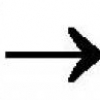Free Online Productivity Tools
i2Speak
i2Symbol
i2OCR
iTex2Img
iWeb2Print
iWeb2Shot
i2Type
iPdf2Split
iPdf2Merge
i2Bopomofo
i2Arabic
i2Style
i2Image
i2PDF
iLatex2Rtf
Sci2ools
118
click to vote
ICCV
2005
IEEE
2005
IEEE
The Pyramid Match Kernel: Discriminative Classification with Sets of Image Features
Discriminative learning is challenging when examples are sets of features, and the sets vary in cardinality and lack any sort of meaningful ordering. Kernel-based classification methods can learn complex decision boundaries, but a kernel over unordered set inputs must somehow solve for correspondences ? generally a computationally expensive task that becomes impractical for large set sizes. We present a new fast kernel function which maps unordered feature sets to multi-resolution histograms and computes a weighted histogram intersection in this space. This "pyramid match" computation is linear in the number of features, and it implicitly finds correspondences based on the finest resolution histogram cell where a matched pair first appears. Since the kernel does not penalize the presence of extra features, it is robust to clutter. We show the kernel function is positive-definite, making it valid for use in learning algorithms whose optimal solutions are guaranteed only for M...
Computer Vision | Fast Kernel Function | Finest Resolution Histogram | ICCV 2005 | Unordered Feature Sets | Unordered Set Inputs | Weighted Histogram Intersection |
Related Content
| Added | 15 Oct 2009 |
| Updated | 30 Oct 2009 |
| Type | Conference |
| Year | 2005 |
| Where | ICCV |
| Authors | Kristen Grauman, Trevor Darrell |
Comments (0)

